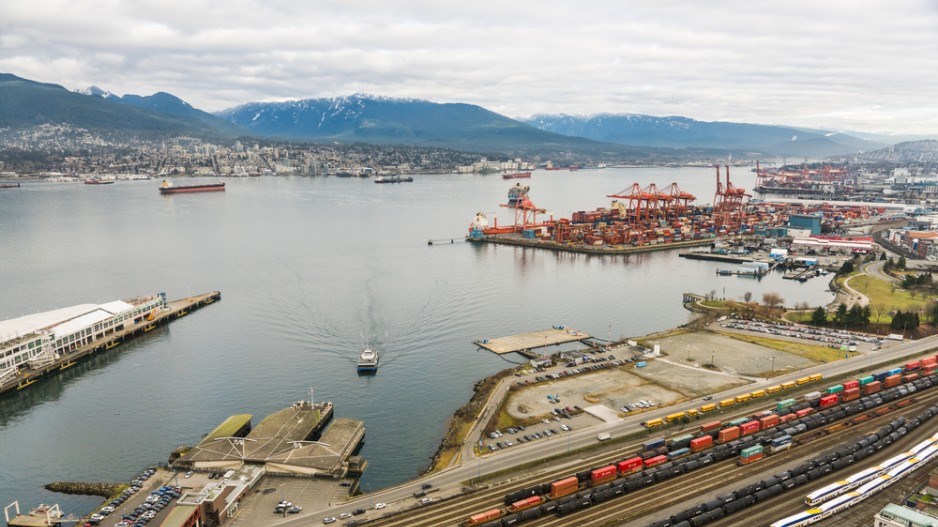The sale of BC Rail by Gordon Campbell’s BC Liberals was necessary in part because union agreements were pricing the provincial asset out of the freight market, recently released cabinet documents say.
“It is estimated that BC Rail is 15-18% uncompetitive with other major railways in Canada primarily because of its inability (or previous unwillingness) to address the significant changes required in work practices, union structure and collective issues,” a June 2003 Ministry of Transportation report to cabinet said.
CN Rail in 2004 inked a deal with Victoria to lease BC Rail’s operations for 999 years.
The year before, though, cabinet was hearing reports from the Ministry of Transportation, then headed by Judith Reid, about the benefits of moving the railway to a federally regulated status.
A June 18 ministry presentation to cabinet, obtained under access to information laws, said the federal regulation regime, then under Liberal Prime Minister Jean Chretien, was focused on privatization, commercialization and decentralization. That, the ministry said, was favoured by larger shippers, although smaller ones feared competition.
The issue the presentation returned to repeatedly, though, was seven private sector unions representing 1,167 of the company’s 1,573 employees.
The report, produced by then minister Judith Reid’s ministry, said if a partner were found to operate the company and it remained under provincial regulation, “all existing terms and conditions would flow with the assets to the partner and remain in force and effect until such time as the partner could negotiate changes or obtain a new structure through a labour board review process.”
However, the report continued, if the operating partner were federally regulated, it could immediately apply to the Canada Industrial Relations Board to have the existing BC Rail unions and their agreements melded into the partner’s existing unions and agreements.
The report said the railway was regulated under the Railway Act, one of the province’s oldest statutes reflecting 19th century objectives for economic regulation. Moving to a federal partner would have brought the railway under the Canada Transportation Act, the report said.
The BC Rail case also sparked one of B.C.’s biggest scandals when police raided the Legislature in December 2003. David Basi and Bob Virk, ministerial aides to then finance minister Gary Collins and then transportation minister Judith Reid, later pleaded guilty on four charges in 2010. After their trial heard one witness, the pair admitted giving insider information to parties to the BC Rail 2003 sale and receiving benefits for the information, including a trip to a Colorado NFL game and money.
Earlier controversy over the government asset also helped Campbell lose the 1996 election to the NDP’s Glen Clark. He’d promised to sell the railway, a mistake he didn’t make in the 2001 election - after which plans moved forward to sell it.
BC Rail still exists as a Crown entity as a wholly owned subsidiary of the B.C. Transportation Financing Authority. The Ministry of Transportation and Infrastructure said it contributes about $10 million per year in net income to the province.
The company owns and manages about $500 million in real estate, rail and port assets including managing the BC Rail-CN Revitalization Agreement (the former BC Rail line), North Vancouver’s Vancouver Wharves marine terminal, Squamish Terminals break-bulk facility and the Port Subdivision rail line connector for CP, CN and BNSF trains to access the Deltaport Container Terminal and the Westshore Coal Terminal, both located at Roberts Bank.
Since 2004, BCRC has sold over 450 surplus properties, generating over $300 million in proceeds and has provided $225 million in cash dividends for the province, the ministry said.
The company employs 27 staff, 14 of whom are railways operations and maintenance supervisors at the Roberts Bank railyard office. The other 13 staff are the real estate, administration and finance staff in North Vancouver.
Last year, the ministry said, the total labour cost was about $3.3 million, the majority of which is billed out to and recovered from the three railways running trains on the BCRC Port Subdivision line.




